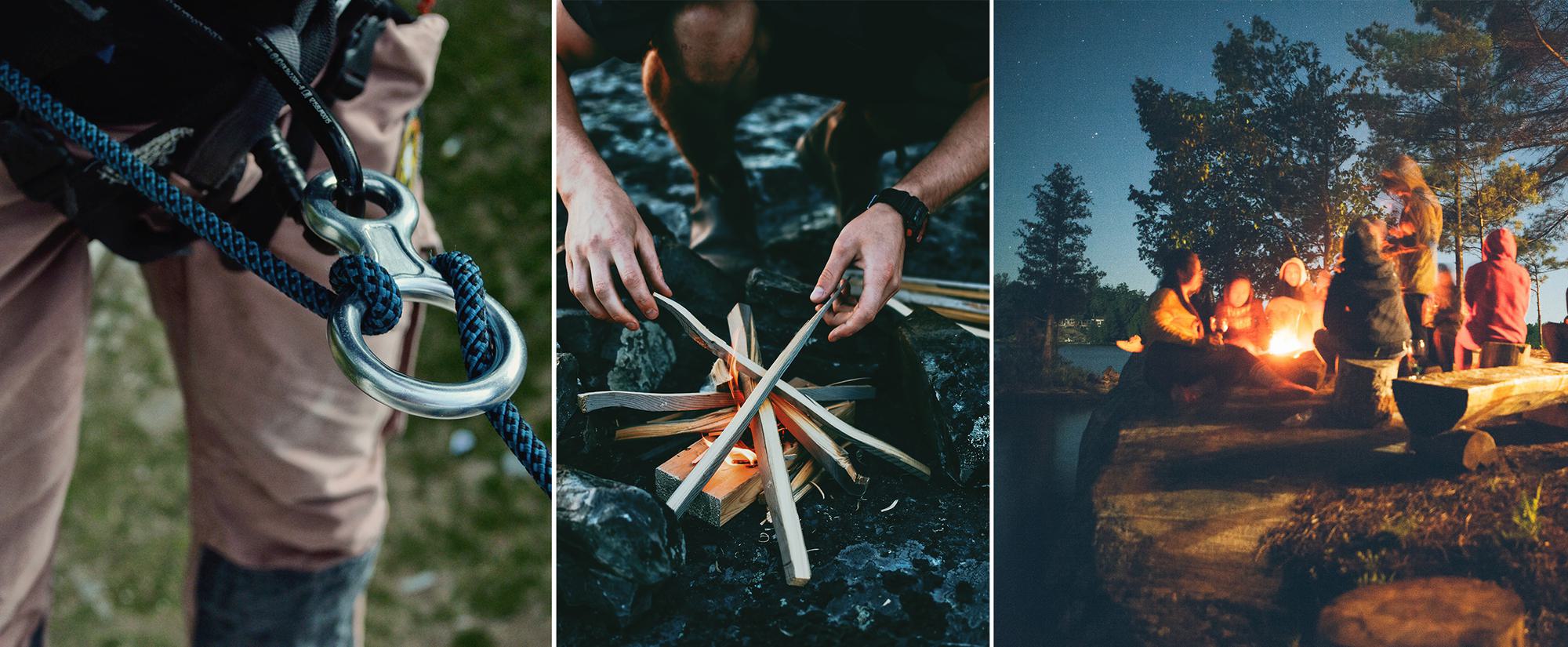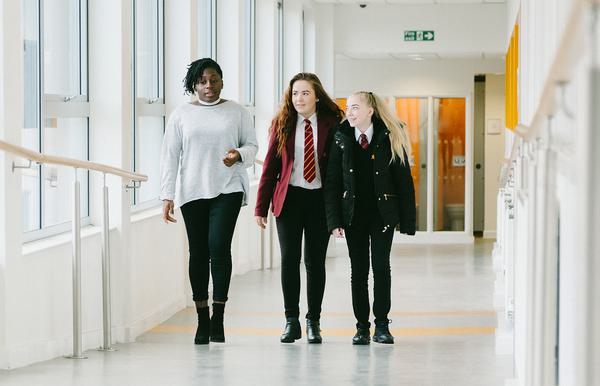Young people who are disengaged from school are at a high risk of becoming NEET (Not in Education, Employment, or Training) when they leave. Youthscape is committed to supporting young people to ensure they break destructive patterns, recognise their own potential, and raise their aspirations.
Covid-19 update
The pandemic has turned the lives of millions of children and young people upside down. It's also changed what kind of activities are safe to continue. From September 2020 we're pausing many of our existing programmes, including this one, and refocusing our Luton work on where we can make the most difference to those who need our help.
----------------------------------------------------------------------
Disengagement from school can take many forms. For some it’s in deteriorating behaviour at school and in conflicts with teachers or peers. For others, it’s in playing truant. For others still, it shows itself in becoming withdrawn or in lack of motivation and engagement with school work.
The causes of it are also diverse, but they often lie outside of school: a disrupted or chaotic family life, the negative influence of peers or the lure of petty crime and gangs. Sometimes it’s a loss of confidence and belief in the point of education – which itself it often a loss of confidence and belief in themselves.
The consequences of disengagement are stark and can have life-long impact. GCSE outcomes are poor – well below what a young person is capable of achieving. They struggle to engage with coursework and, as the pressure to work hard increases in Years 10 and 11, they spiral downwards in behaviour, engagement and aspirations. Leaving school, they’re at high risk of becoming NEET.
Youthscape run two NEET prevention projects, Compass which focuses on students in Year 9, and Fearless, which is open to students from Years 8 and 9.
Compass
Compass is a bold intervention programme that seeks out those most at-risk and works to change their life trajectory. This seven-session series works with those in Year 9, at a decisive time before their GCSE’s begin, giving them practical tools to break destructive patterns, a safe space in which to be listened to, and an empowering boost to their self-esteem.
“Youthscape fill the gaps in our school. They work with our most difficult students and they almost always get through to them. We regard them as indispensable to our school community."
It’s been carefully developed using research, insights from behavioural psychologists, and the experience and skills of our team of youth workers, ex-teachers and social workers. It’s built around three core beliefs:
- Young people have few, if any, adults ready to listen to them. Creating a safe space for young people to talk about their experiences, their feelings and their fears is crucial and can be transformative.
- Young people often want to break the cycle of their own behaviour – they just don’t know how or where to start and frequently feel trapped: they need practical steps.
- Young people’s self-esteem is fundamental to how they engage with others – their peers and their teachers – and how motivated they are to learn. Positive change here is crucial.
Compass runs a new programme each term, with a mixed-school group of between 10-15, There are four key components.
Firstly, participants spend one day a week at Youthscape’s Bute Mills base, involved in group work, one-to-one sessions, therapeutic exercises, open discussion and confidence-building activities. Specific areas explored include facing up to family difficulties, communicating effectively with adults and peers, taking responsibility for your own actions, delaying gratification (working hard now for a benefit in the future), and developing goals.
Simultaneously, in-school support and mentoring help a young person implement changes in their behaviour. Our team work with students regularly in a 1-1 capacity, helping them deal with setbacks and offer any other support needed. The programme finishes with a graduation ceremony to which school staff and parents and carers are invited.
Thirdly, after school on-going support is provided for as long as needed to sustain change beyond the programme. Participants are also invited to attend the Bute Mills drop-in after school on Wednesdays. This gives them a chance to speak to their mentor, ask advice, share successes and sustain the changes they have made.
Finally, each programme has a residential element, usually a few weeks into the programme, where students participate in a twenty-four hour adventure that deepens their engagement with the programme and each other. For the Autumn and Spring cohorts, these take place at a residential centre, but the summer term provides the additional challenge of building your own shelter and sleeping overnight outdoors. Overseen by a professional organisation highly skilled in outdoor work with young people, the programme is a frequent highlight for participants as they work together to learn various skills including fire-making, foraging for food, low-tech cooking, and shelter building.
We believe Compass can be a significant opportunity for young people to change the trajectory of their lives are a crucial point where it can make a huge difference. Young people participating in the programme will do better at GCSE’s – giving them greater options for the future.
“Before I started Compass, I didn’t listen and ignored other people, now I’m listening and respecting other people’s ideas.”
They will be less likely to become NEET and more likely to go into post-16 education or training. Of course, there are lots of factors at play in their lives – some positive and others negative. Compass is not the only influence, but it can create new options and opportunities for young people who feel stuck in how they engage with school. Compass can help point them to a brighter future.
The cost of Compass is £195 if the school enrols one student, £175 per person if the school enrols two students, and £155 per person if the school enrols 3 students.
Who will benefit from the Compass programme?
Students in Year 9 who are:
- Disengaged from learning
- Have low aspirations
- Exhibit challenging behaviour
- Withdrawn and non-compliant
- Truant or have poor attendance
How does a student join compass?
- Schools identify young people who will benefit from the programme.
- Schools complete a referral form.
- Our team will make contact with the school to discuss the referral and confirm a place.
- Parent/carer permission is obtained.
- A member of our team meets the student. The purpose is to confirm they meet our eligibility requirements, learn more about them and their experiences and, most importantly, engage the student positively with the idea of participating in Compass.
- The school provides the funding for the student's participation in Compass and makes arrangements for transport to and from Youthscape's centre at Bute Mills.
- Programmes commence normally in the first weeks of each academic term

Fearless
Girls who are supported in developing strong and healthy self-relationships are less likely to be distrustful, abusive, manipulative, angry, and more likely to be able to regulate their emotions, demonstrate empathy, create strong social connections and live in alignment to their needs and values.
Fearless is a 6 week course for girls in year 8 and 9 who are already showing signs of low self-esteem and lack of resilience. Each week will focus on a different theme around how we can have better relationships; firstly with ourselves (exploring key issues of identity), with others (character, relationships, communication) and with the world (where they fit in, how they can use their character and abilities to enjoy life); culminating in the girls sharing their learning and experiences in the final week.
The girls will each receive a scrap-book in the first week which they will fill with creative learning assignments, and also take home to journal and fill in. This will become their way of documenting who they are and should empower them to have a sense of ownership over the whole process of growing and learning. They can then take this with them at the end of the programme to remind them of who they are and what they have accomplished.
We establish a culture of affirmation of others from the start, encouraging each of the girls and setting a tone of care and support.
The aim of the programme is to empower each young person to know their worth, to accept and respect themselves in a more profound way, and to be able to understand others better through sharing of thoughts, activities, and quality time during the residential.
In turn, this will produce positive results in school by enabling the students to be more confident in themselves and communicating their needs, building healthy relationships, and responding to their learning environment in a more positive way.
Who will benefit from the Fearless programme?
Students in Years 8 and 9 who:
- Are low in self-esteem
- Are low in resilience
- Have anxiety
- Are disengaged from learning
- Have low aspirations
- Exhibit challenging behaviour
- Are withdrawn and non-compliant
- Truant or have poor attendance
How does a student join Fearless?
- Schools identify young people who will benefit from the programme. The Heads of Year 8 & 9 and pastoral staff can often readily identify students with incredibly low self-esteem, resilience, and general disengagement, and are acutely aware they need extra support and help. Sometimes the process can be more formal using an educational tool called The Pupil Attitudes to Self and School (PASS).
- Schools complete a referral form in detail and send to our Fearless team. Parent/carer permission is also required.
- A member of the Fearless team visits the school to meet the referred student and carry out an initial assessment. The purpose is to confirm they meet our eligibility requirements, learn more about the student and their experiences and, importantly, engage the student positively with the idea of participating in Fearless, since the programme is voluntary. The school is asked to provide the funding for the students’ participation in Fearless. The cost is £195 pp if the school sends one student, £175pp if the school sends two students and £155pp if the school sends 3 students.
Getting advice and making a referral
If you have any further questions about our NEET prevention programmes, please contact Matt Allen or Beki Lannap. To make a referral, complete a referral form for the young person.




